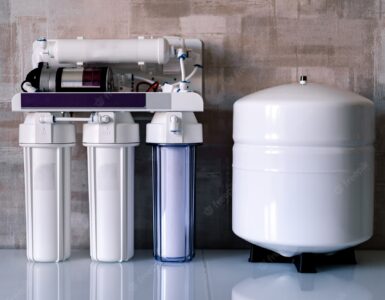When you first sat down and said, “I’m going to run my own company.”, hashing out the finer details of your fencing materials was probably nowhere near your business plan.
With a residential fence, your concerns likely revolve around discouraging nosy neighbors and keeping Fido in the backyard. But with a commercial fence, your decision has surprisingly far-reaching ramifications.
What can you do? How do you know if you’ve picked the right commercial fencing? Keep reading for the inside scoop.
What Does Good Commercial Fencing Look Like?
To get a sense of what materials you should buy, it’s important to understand what “good” fencing materials should be able to do. By our count, there are a few key features that allow the best commercial fences to stand out from all the rest:
1. They’re Within Regulations
Between the people questioning their usefulness and the sheer amount of ink that has gone into writing bylaws and ordinances, zoning laws can be a headache and a half in the best of times. And when you’re securing fencing for your business, the problems can quickly multiply if you’re violating local ordinances.
For starters, there’s the embarrassment. Nobody wants to be the company that made the news after putting up an illegal fence. But then there’s also the expense of having to do another fence installation under the watchful eye of your local regulators.
To that end, finding a top-notch fence for your business starts with being on the right side of the law.
2. They’re Secure
When you’re hosting a shindig or developing a property on a short-term basis you might not need much more than temporary fencing to get the job done. But if you plan to install a permanent fence, it pays to make sure that your fence is on the “secure” side of the “secure versus pretty” spectrum.
Here’s why:
U.S. businesses lose approximately $800 million a year to theft and burglaries. And in many cases, these thefts aren’t being carried out by supervillain masterminds that would make James Bond think twice. Commercial theft is often about opportunity.
As far as your business is concerned, a secure fence is a good fence.
3. They’re Reasonably Easy to Use
At first glance, using a fence doesn’t seem like it should be rocket science. But the truth is that a commercial fence can cause a lot of problems for a workplace if it isn’t a good fit for the building.
Can your staff get in and out of the building effectively with that fence? Or is there likely to be a minor traffic jam at the entrance every lunch hour?
You should expect an adjustment period when you’re choosing a fence. But if the problems are prolonged or if the buzz code is preventing people from coming in to work, you may have chosen the wrong fence for your business.
4. It Looks Good
Nobody expects offices and retail spaces to win awards for creativity in decor – although it’s always nice when it happens. But at the same time, most people have unspoken expectations about what a reputable place of business looks like when you go in.
As such, if you’re in a sleek, upscale office building, a fence that screams, “I was made for a family home!” may not fit the image you’re trying to portray. Although you ideally want your commercial fence to perform its function, it is still a good idea to also think about what will play into the visual impression you want to create for your business.
What Fencing Materials May Be Involved?
Okay. So we’ve gone over a few general tips to keep in mind when it comes to assessing your fencing options. Now we’re going to go over some of the most common types of fencing materials that businesses have to choose from.
1. Chainlink
If you’ve seen any movies that feature prison escapes, factories, or industrial operations, chances are that you’ve seen a cinematic shot that features a chainlink fence.
This type of fencing is secure. It can be outfitted with barbed wire or electricity. And it’s easy to see inside and outside of your property. In short, chainlink has a lot going for it. Plus, it’s not only low maintenance – it’s also affordable.
For businesses that are primarily concerned about security, chainlink can be a great choice.
2. Vinyl
If you’re looking for privacy and you love the look of the classic wooden fence, vinyl is a very popular option. Why? Because it’s built to last and the planks are stuck together in a way that doesn’t allow rubberneckers or lookie-loos to peer in on your business.
In addition, these fences are very low maintenance. This combination of privacy and flexibility makes vinyl an awesome choice for businesses who want privacy, style, and a fence that doesn’t require a lot of day-to-day work put into it.
3. Concrete
On a practical level, concrete offers next-level security to businesses. Not only is it exceedingly difficult for would-be thieves to scale up concrete, but it can also be difficult for people to spy on your business or listen in on your activities with a concrete barrier surrounding your facilities.
Since concrete often only requires a bit of power washing here and there, you also get the benefit of getting another low-maintenance fence.
4. Steel or Aluminum
Have you ever seen a picture of Buckingham Palace or seen a park fence made up of beams? Then you’ve probably seen this type of fence multiple times before.
For businesses that like the visibility of a chainlink fence but want a more classical-looking option, this fencing material option gives you the best of both worlds. The materials are strong and durable. But at the same time, they’re designed in such a way that anyone who needs access to your property can still get where they need to go.
This is a very common option for companies that want a slightly more upscale-appearing fence.
Get the Fencing Materials That You Need
When you’re shopping with commercial buildings in mind, looking for the right fence isn’t easy in the best of times. And when you consider all of your options for fencing materials, pinning down a design can quickly become even more overwhelming. Armed with the information we’ve just provided, however, choosing a fence and picking the right materials for your business may be simpler than you think.
Are you looking for more information like this? Explore the rest of our site to read more posts like this one.




























